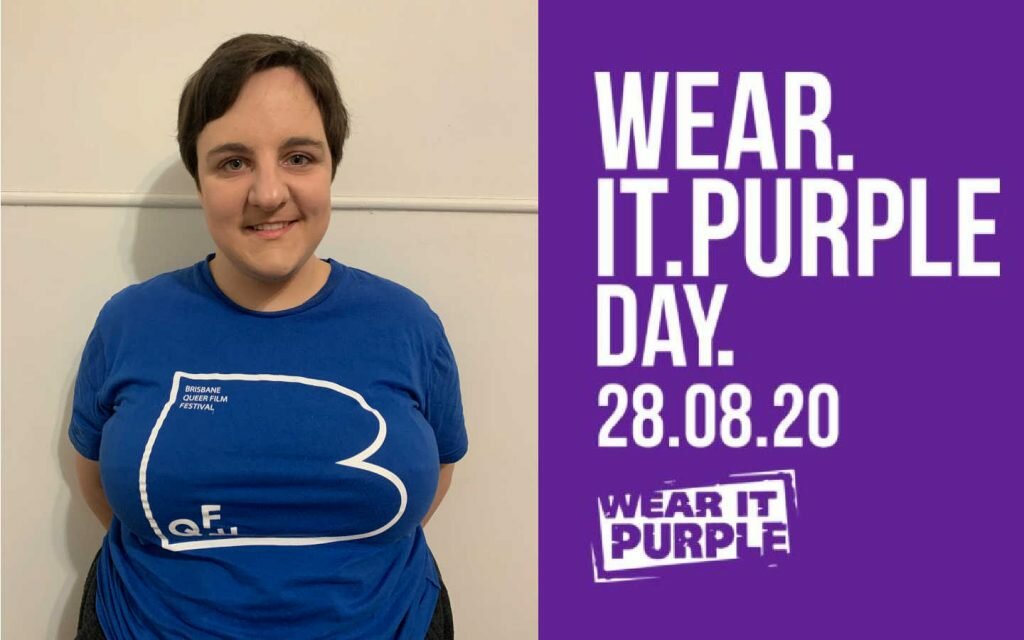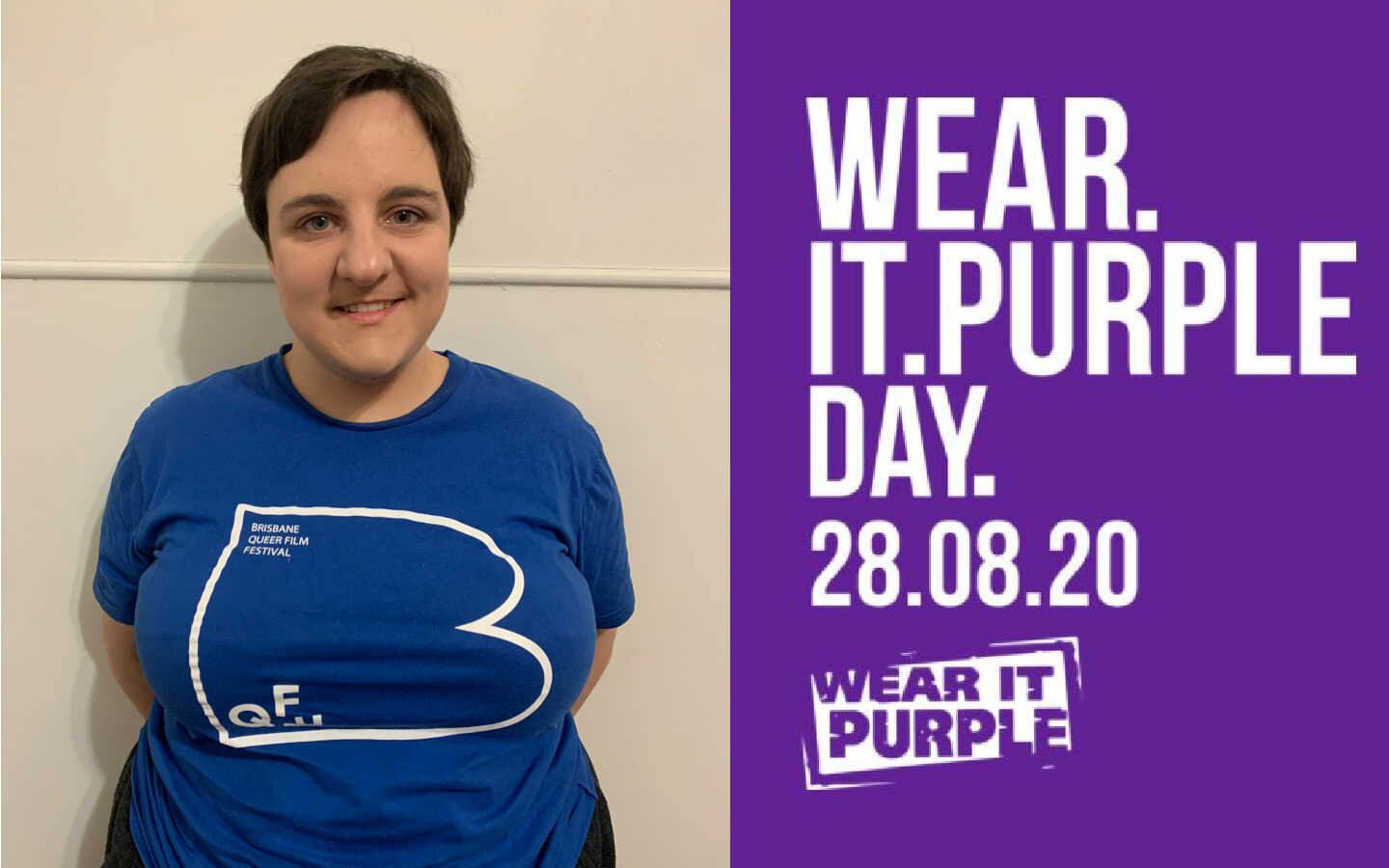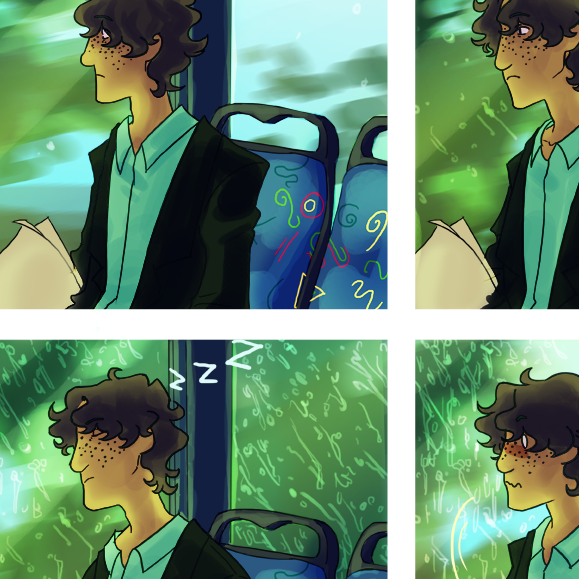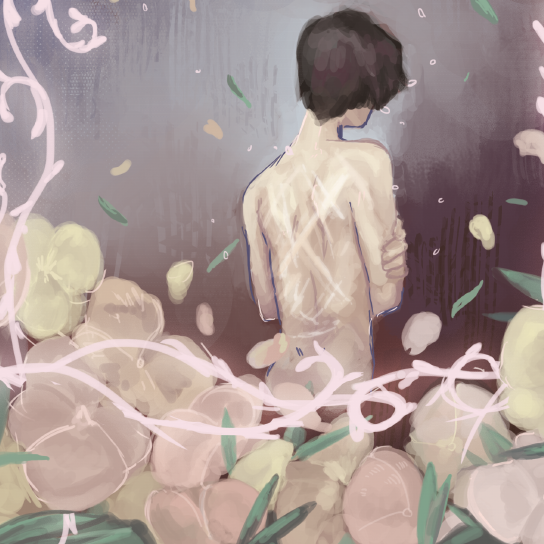
If you buy something from a link, we may earn a commission. This is used to help maintain the site and create more content for you!
Phoebe Ayscough talks Indie Comics and Animation
Wear It Purple Day is a fantastic Not For Profit Initiative that promotes inclusion and awareness around sexuality and gender equality, specifically amongst LGBTQIA+ Australians. In celebration of Wear It Purple Day, I spoke with LBGQIA+ Comic Book Artist and Animator Phoebe Ayscough.
I hope you enjoy reading this interview as much as I did talking with Phoebe.
Anthony Pollock: Thank you for taking the time to chat with me this week. Please tell the readers a bit about yourself and the work you do.
Phoebe Ayscough: My day job is animation. I rig and animate for 2D cartoons on a freelance basis and teach first year animation at QCA in Brisbane. Drawing and writing comics is a hobby.
Anthony Pollock: When did you start getting into comics and what led you to start creating them?
Phoebe Ayscough: In the early 2000s, EB Games used to sell Tokyopop manga localisations, like, underneath the Pokemon merchandise. The one at my local shopping centre had a rotating lineup of like 6 books, and among them were Cardcaptor Sakura and Loveless, which sold me instantly.
I was probably like 10 or 11 the first time I bought one. If you’ve ever seen anything of either of those comics I think it’s probably easy to imagine why an autistic baby lesbian would immediately imprint on them. Pretty much my entire social experience took place on the internet, so making up stories with my online friends and drawing them was one of the most satisfying and fun ways of connecting emotionally. That whole era was very formative for me.
Anthony Pollock: As an LGBTQIA+ creator, what are your biggest obstacles when it comes to your work? How do you overcome them?
Phoebe Ayscough: I want to answer this question as thoughtfully as I can, because it’s a complicated one. I think if you’re part of any marginalised community and you’re interested in making creative work that honours and respects that community, you shut yourself away from a huge majority of audiences and financial investors who are completely uninterested in that – but the truth is that I’m not interested in engaging those audiences, and in fact can’t imagine anything less fulfilling than gaining a broad audience through shallow work.
My relationship to art and storytelling is closely connected to my relationship to my identity and community, and it’s difficult for me to see that as anything but deeply rewarding. Independent comics and animation are both pretty overwhelmingly gay communities anyway, so I’ve never felt ostracised by that.
Anthony Pollock: Can you walk us through your Comic Book creative process? How has it changed since when you first started?
Phoebe Ayscough: The biggest change is that it used to mostly be drawing and now it’s 99% lying in my bed and wishing to be a lizard. (That’s a joke.) Not much has changed logistically since I started making comics. Obviously everything is from home now, which sucks. I used to like going out to libraries and cafes to draw and write. But I think everyone’s feeling that right now.
Anthony Pollock: Wear It Purple Day is a day that for sexual inclusivity and positivity, however, it hasn’t always been this way. What are some of your insights as an LGBTQIA+ creator?
Do you feel we’re on the right track?
Phoebe Ayscough: I think it’s a nice sentiment. We degenerates have infiltrated the creative industries pretty thoroughly in some ways, as I said earlier, though I think a lot of us, especially women and people of colour, tend to age out of it in a way that straight white men don’t. In terms of being on the right track, I feel we have a popular movement that centres an image of middle-class, white, cisgender respectability at the expense of our siblings who need support the most – BIPOC trans women, sex workers, those of us on the margins who built our movement and culture up to what it is now.
Black and Indigenous trans people are being murdered and committing suicide in horrifying numbers all over the world, and there are too many commentators willing to step over their bodies to make themselves respectable to the mainstream. I think Youth Action Council is doing good work, but I would really urge anyone who seriously considers themselves an ally to consider what they can do in their communities and with the LGBT people in their lives to lend concrete support.
Anthony Pollock: One of your projects, Phantom Wings, is about sexual, self harm and suicide. How would you describe your work to those unfamiliar with you and with comic books as a whole?
Phoebe Ayscough: Phantom Wings is a comic essay of literary criticism looking at the relationship between shoujo manga and literary fiction in their depiction of those subjects. I wrote it a few years ago now, and don’t stand by all of my old conclusions about the moral implications of certain types of literary ‘exploitation’, but it’s still a subject that interests me enormously.
The two books I spoke about in that comic were Moto Hagio’s seminal shoujo manga The Heart of Thomas and Hanya Yanagihara’s literary New York novel A Little Life – pretty much just dragging the latter and praising the former. The romantic, aestheticised treatment of suffering in art has always fascinated me, I’m sure it fascinates many people – both those books are enormously popular.
Honestly, I think if you weren’t familiar with comics, mine wouldn’t be a great starting point. I’m not a cartoonist first and foremost, although it would be nice to be one someday – I don’t think my comics work has the commercial viability to make me a living, which is why I spend most of my week animating.
If I were to try and sell my art to a stranger I’d probably describe it as Muriel’s Wedding by way of the Ghibli movie Only Yesterday, with like, maybe a splash of Dungeons and Dragons in there occasionally and a generous sprinkling of Elliott Smith, and also gay. But really I probably just wouldn’t initiate that conversation with a stranger at all.
Anthony Pollock: Many of us creators work on projects outside of our 9-5 jobs. Do you have any advice for balancing careers with passion projects/side hustles?
Phoebe Ayscough: My advice is that it’s really hard and makes me wish I was a lizard. My actual advice is to try not to let your self-worth become too entangled with your productivity, or to stress yourself out more than you need to. Julia Gfrorer has said more than once that there’s no stability or money in comics, it’s a place you end up because it’s all you can do, and she’s never wrong. If you’re driven to create, you’ll create. Focus on being alive.
Anthony Pollock: Do you feel the Australian Comic Book Industry needs an inclusivity day like Wear It Purple?
Phoebe Ayscough: I don’t know, what would that actually entail? If it’s just like, every Marvel employee with an ANZ citizenship makes a tweet about Marsha P Johnson or whatever, then probably not. My understanding of this event is that it’s mostly for teens and probably makes closeted kids feel a little less unsafe at school. But again, I have no idea what the commercial comics industry is like. Everyone I know in comics is gay anyway.
Anthony Pollock: Do you have any upcoming events/projects/releases you would like to discuss?
Phoebe Ayscough: I’m animating on a game called Blueberry, produced by Mellow Games, which is about mental illness and motherhood and which is gonna kick ass. I didn’t write it or develop it or anything. I’m just a peon, but I’m proud to be part of it. I have some comics and animation stuff in the pipeline but sadly it’s all under NDA!
Anthony Pollock: Thank you for taking the time to do this! Where can readers find you and your work?
Phoebe Ayscough: Thanks for hitting me up! My twitter is @phoebeayscough. I have a website, http://phoebeayscough.com, too.




